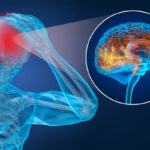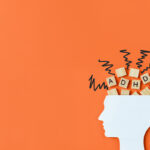Post-traumatic Stress Disorder (PTSD) occurs when a person has difficulty recovering after experiencing or witnessing a terrifying event and is associated with intense physiological, emotional, and cognitive reactions to a traumatic or stressful life event.
It also has one of the widest spectrums of criteria as psychological conditions go. A misconception is that PTSD is limited to people like war veterans and victims of sexual assault, who have experienced a violent act. These are certainly traumatic events that lead to PTSD, but the disorder can also be caused by psychological and emotional abuse, as well as an event so severe, like COVID-19.
We’ve previously written about the impacts of COVID on mental health, and now we take a closer look at the relationship between the pandemic and PTSD.
Understanding the Symptoms
PTSD symptoms can take shape at any time during the direct aftermath of the traumatic event or months or years later. There are four classes of symptoms:
Intrusive memories: recurrent memories of the traumatic event; reliving the trauma in the form of flashbacks; nightmares; and severe emotional or physical reactions to something resembling the event.
Avoidance: trying to banish any thoughts or conversation about the trauma; avoiding people, places, and circumstances that serve as reminders of the traumatic event.
Negative changes in thinking and mood: feelings of shame, anger, or guilt; loss of interest in previously enjoyable activities; and hopelessness.
Changes in physical and emotional reactions (arousal symptoms): trouble sleeping; hypervigilance; difficulty concentrating; and aggressive behavior.
Causes During COVID-19
Our collective mental health has been put to the test extraordinarily during the pandemic. Daily life turned on a dime and upended everything we were used to, and it has come with consequences.
People who were hospitalized with COVID-19 may have experienced the trauma of nearly dying and being isolated from friends and family. Such an event can trigger PTSD, as well as other mental health disorders, not to mention potential long-term respiratory and cardiac complications.
Losing a loved one is also a potential cause of PTSD. In addition to the sorrow felt when a relative or friend dies, grieving has been a lonely experience. Funerals have been limited to small groups, and ceremonies like wakes and shivas have been conducted remotely.
Then there’s the isolation and disruptions to our daily and seasonal routines. Not being able to see loved ones, confinement, and lack of socialization, have taken a toll on my people’s lives.
Front line workers, especially those in healthcare, increase their risk of developing PTSD, as noted in this overview by The University of Michigan: “COVID-19 has quickly become a global health emergency resulting in not only physical health concerns but also psychological concerns as people are exposed to unexpected deaths or threats of death. For example, Healthcare workers who have close contact with COVID patients are not only exposed to the virus on a regular basis, but they may also be witnessing increased illnesses, deaths, and supply shortages.”
Treatment Options for PTSD
As with other mental health conditions, there are effective treatments for PTSD, including but not limited to psychiatric medication, trauma-focused cognitive behavioral therapy (CBT), exposure therapy, eye-movement desensitization and reprogramming (EMDR), and neurofeedback therapy.
Chicago Mind Solutions works with individuals suffering from PTSD through psychotherapy and
Neurofeedback, which targets dysregulation in areas of the brain associated with excessive fear response, hyperarousal, and emotional memory processes. For more information about our treatments and teletherapy options, please contact us at (224) 723-5050 or email info@chicagomindsolutions.com.






